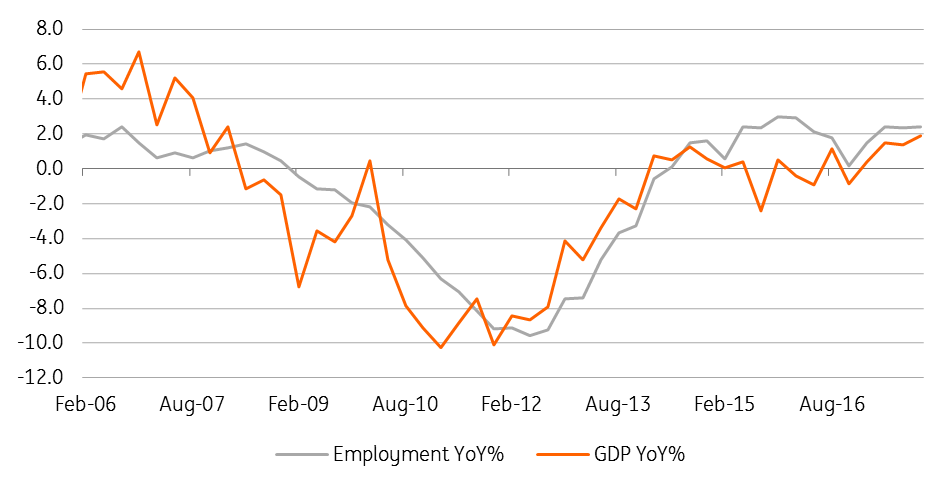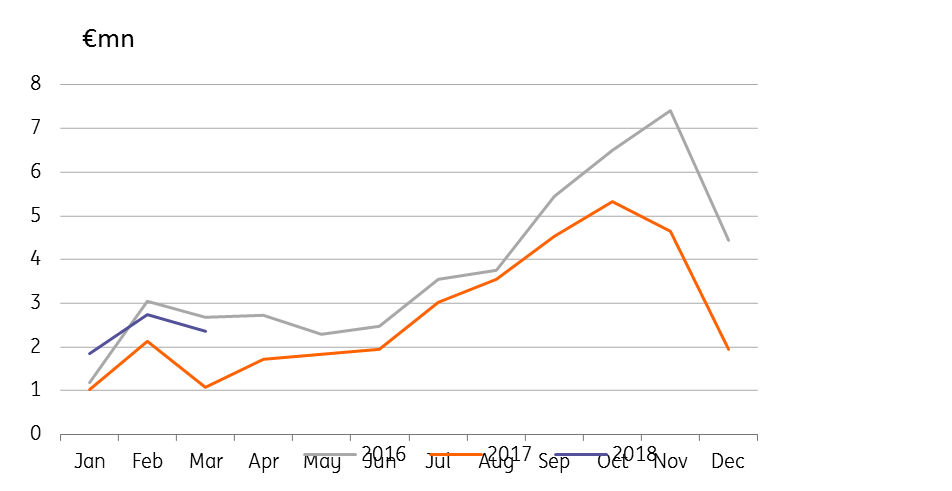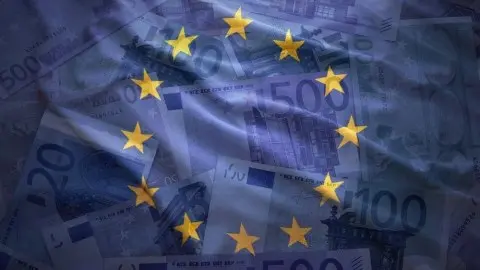Greece: Looking through the end of the third programme
Greece is rushing to complete prior actions to close the ESM programme. Some extra debt relief should be conceded at the end of it, but life after it will continue under strict surveillance, however “clean” the exit is
Economic recovery driven by investment
The Greek economic recovery continues at a moderate pace, with a domestic demand drive.
Interestingly, as confirmed by 4Q17 data, investment has become by and large the main engine of Greek economic growth. On the flipside, the high import content of investments has compressed net exports. Despite an improving confidence backdrop and a solid 2.5% year on year expansion of employment, private consumption came in on the soft side. To be sure, ten years after the outburst of the global financial crisis, total employment is still 20% below pre-crisis highs, and the unemployment rate hovers around 20.8%.
GDP recovery continues to support job creation

Fiscal overperformance a political asset
Public finance developments over 2017 have been extremely positive, with Greece widely beating it's 1.75% of GDP primary surplus target. The 4% primary surplus and the 0.8% headline surplus are a valuable political capital for Alexis Tsipras's government given the conclusion of the third programme.
How much of this will be spendable will crucially depend on whether lenders will deem the fiscal over-performance as non-recurring. This is possible, given the frequent resort to ever stricter spending controls to compensate persistent problems in tax collection.
Cumulated state sector primary balance

Third programme close to its end
Looking forward, Greek economic developments will depend on a smooth conclusion to the third ESM stability support programme. To allow for an orderly August closure, the fourth and final review should ideally be completed before the 21 June Eurogroup meeting.
The positive conclusion of the accelerated bank stress test run as part of the review is certainly a facilitator, but reported delays in the implementation of agreed 88 prior actions are putting at risk the preparation of a staff level agreement for May 24, when the Eurogroup will next convene.
Additional debt relief set to come
After this, the focus is likely to shift to debt relief and the post-programme framework. Debt relief issues have so far been mainly relegated to technical conversations, and no consensus has been reached. If an additional lengthening of EFSF loan maturities and the transfer to Greece of profits on GGBs held by the ECB look now very likely, other measures are reportedly being explored.
These include the possible buying of remaining IMF loans by the ESM with undisbursed funds from the third rescue programme package and, more controversially, some action on GLF and ESM loans. In any case, as recently confirmed by Mario Centeno, the chief of the Eurogroup, eventual additional debt relief measures would be put in place only after the end of the programme.
Greece won't escape strict post-programme surveillance
The other key issue yet to be settled is the post-programme framework for Greece. If the Greek Prime Minister Tsipras remains a long-time supporter of a clean solution with the least possible level of post-programme control, lenders seem keen to keep the grip on Greek fiscal and financial developments, possibly along the lines of the “enhanced surveillance” proposed by the EU Commission. On conditionality, opinions seem to diverge also among lenders. The clean solution would have a relevant drawback: in the absence of a programme, the rating waiver that allows banks access ECB funding using junk-rated GGBs as collateral would expire.
This is why the request by Greece of a precautionary credit line, part of the untapped toolkit of the ESM, has repeatedly been evoked by the Bank of Greece's governor Stournaras. In its Enhanced Conditions Credit Line version, which gives the ESM member requesting it the flexibility to request funds at any time during the availability period, it could be decently attractive, but admittedly politically costly.
Type of exit to affect elections date
The choice of the type of exit could ultimately affect the timing of the next Greek parliamentary elections, due no later than 20 October 2019.
A clean exit might become a strong incentive for PM Tsipras to capitalise with a snap election after the summer. While a “dirty” one, could instead prompt him to wait for the economic recovery to strengthen, aiming for a vote in concurrence with European elections in May next year. Only time will tell.

This publication has been prepared by ING solely for information purposes irrespective of a particular user's means, financial situation or investment objectives. The information does not constitute investment recommendation, and nor is it investment, legal or tax advice or an offer or solicitation to purchase or sell any financial instrument. Read more
Download
Download article
17 May 2018
ING’s Eurozone Quarterly: A slower cruising speed This bundle contains 12 Articles